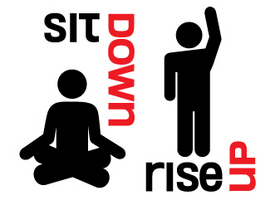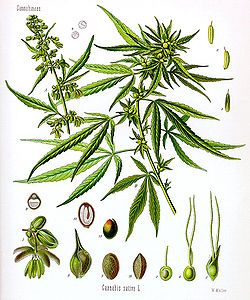Often in business, we are confronted with shortcuts, with opportunities to bend our integrity just a little bit, in order to enrich ourselves. This might mean financially, or taking credit where it isn’t due, or avoiding a difficult situation we would otherwise have to face.
At other times, we find ourselves secretly rejoicing at others’ failures, even small ones, and cursing their successes. The former is so common that there’s even a word for it!
What we usually fail to recognize is that any pleasure we gain from bending our integrity–whether by taking that which doesn’t belong to us, gossiping about another, or wishing them ill–is always, one hundred percent of the time, outweighed by the negative effects of this lapse.
Jon Kabat-Zinn talks about this at length in his book, Coming to Our Senses:
“We all know that when we transgress in some way, when we are
dishonest, lie, steal, kill, cause harm to others, including through
sexual misconduct, when we speak ill of people, when we stimulate,
dull, or pollute our own minds by abusing substances such as alcohol or
drugs out of our own unhappiness and desire for some relief from our
pain, the consequences are invariably destructive, causing untold harm
to others and to ourselves, whether we know it or not, whether we are
beyond caring or not…. Generosity, trustworthiness, kindness,
empathy, compassion, gratitude, joy in the good fortune of others,
inclusiveness, acceptance and equanimity are qualities of mind and
heart that further the possibilities of well-being and clarity within
oneself, to say nothing of the beneficial effects they have in the
world.”
And while ethics, or shila, is the second of the Six Paramitas, it’s also a major component of the Noble Eightfold Path and is specifically discussed in the areas of Right Speech, Right Action, and Right Livelihood. H. H. The Dalai Lama points out the importance of ethics in business in The Leader’s Way:
“When I think of ethical discipline, I am reminded of the advice given to other rulers by a king who was notably successful in governing his realm: ‘The best way for a ruler to reign over his country is first of all to rule himself.’ By ‘ruling himself’ the king meant withstanding tempation–in order words, ethical discipline. Most kings want to be rich, admired, respected, and successful. Unless the actions used to reach such objectives are governed by moral restraint, the result will be trouble in the kingdom. Likewise, leaders in an organization who don’t lead with ethical discipline put their companies, their employees, and their shareholders at risk. One needs only to recall the fate of Enron to see that this is the case.”
So we can act ethically not just because it’s the right thing to do, but because it’s in our best interest. If we in business want to have our “kingdom” run smoothly, we need to consider Right Speech and Right Action. If we choose a livelihood that depends on the suffering of others, we have to look at how that suffering will manifest in our own lives.
Geshe Michael Roach discusses this in The Diamond Cutter, telling us to be careful that we never engage in divisive speech–even if it’s true. When we create a space where gossip and divisive speech are tolerated or encouraged, we cause others to arise in that space as gossipers and infighters. Roach points out that the solution is never to go to these people and ask them to stop their infighting. The problem exists because of the karma you yourself have created. “The fact that they are fighting in your presence, in your world, is something you have to experience because of something in your mind.”
It all comes back to karma. Karma is certain, however you choose to understand it. Lama Zopa Rinpoche points out that the only route to happiness is by creating the karma needed to cause it:
“All our experiences of happiness and suffering depend on karma. No
matter how much we desire happiness, if we follow ignorance alone,
without respecting karma, we’ll have nothing but suffering to
experience. We can clearly see that irrespective of how much some
people strive for life’s comforts, they continually suffer one problem
after another, while others always experience comfort and happiness
with hardly any effort.
Since we create the karma, and since to observe karma means to
correct each tiny action, then how should it be observed? Avoiding
nonvirtuous actions and practicing virtuous ones is observing karma,
and to so we must be able to distinguish between them….
…The actions we create by
negative impulses, harming ourselves and other living beings, are
nonvirtuous. The actions we create created by positive impulses,
benefiting ourselves and other living beings, are virtuous. Nonvirtuous
actions only bring suffering results, causing rebirth in the lower
realms or even suffering in the upper realms. Virtuous actions only
bring happy results, such as birth in the upper realms and all other
happiness…
…It is important to avoid
drawing false conclusions on the basis of incomplete understanding and
faulty logic. Seeing bad people enjoying a wealthy lifestyle we might
think that there is no correlation between happiness and virtuous
actions or between suffering and nonvirtuous actions, but we are very
foolish to deny these fundamental truths just because we don’t have
that personal knowledge. It has, in fact, been the experience of a
great many ordinary beings, let alone the enlightened beings who fully
see the three times–past, present and future–and who have shown us the
path to discover all this….
…Of all the 84,000 teachings of the Buddha, the most essential one, the
one that leads us all the enlightenment, is karma. Observing karma is
our most vital practice. In the same way that even though a patient
might take his medicine, if he then reverts to his unhealthy diet and
wrong living he will get sick again, if we don’t observe our karma and
stop creating harmful actions, we will have to experience suffering in
the future.”
It all comes back to karma. You want to be happy, watch your ethics. Be careful how you treat others. Be interested in their well-being, if you want some well-being for yourself. There ain’t no other way. As Lama Marut says, “thems the laws of the cosmos, yo.”

